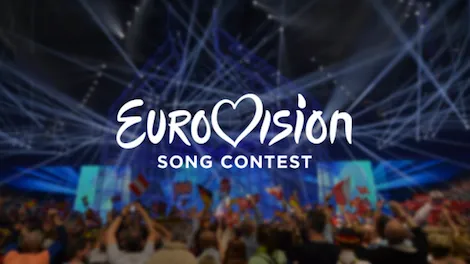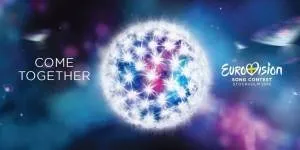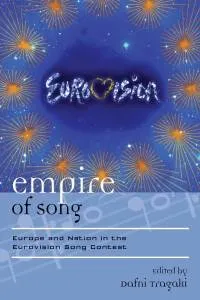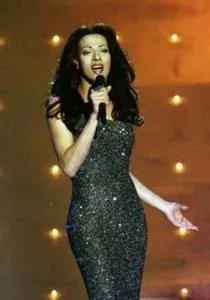
Eurovision Song Contest: A Primer
 With over 200 million viewers, the Eurovision Song Contest is one of the largest TV events in the world, and on May 14 it will be broadcast in the US for the first time.
With over 200 million viewers, the Eurovision Song Contest is one of the largest TV events in the world, and on May 14 it will be broadcast in the US for the first time.
After sixty years, American viewers will finally be treated to this wonderfully cheesy international music contest that claims to be all about the song but in actual fact is just as much about politics.
The Eurovision Song Contest was first held in Switzerland in 1956, then as now organized and produced by the member countries of the European Broadcasting Union. In his book The Eurovision Song Contest: The Official History, John Kennedy O’Connor chronicles the history of the contest from its humble beginnings in 1956 to the massive TV event it is today.
The Eurovision Song Contest helped launch the career of ABBA, representing Sweden at Brighton in 1974.
The purpose of the Eurovision Song Contest was to unite Western Europe, still affected by the aftermath of World War II, through song. However, the contest soon developed into something much more as it became part of the underground dissident culture of the Soviet Union and the communist countries of Eastern Europe.
After the Cold War ended, countries of the former communist block, including Russia, became members of the European Broadcasting Union and began competing in the Eurovision Song Contest.
It would seem, then, that the contest had lost its political significance.
Nothing could be farther from the truth.
As Ivan Raykoff and Robert Deam Tobin explain in their book A Song for Europe: Popular Music and Politics in the Eurovision Song Contest, the post-Cold War Eurovision Song Contest has become an arena for international politics and displaying ethnic ties and nationalist sentiments in Europe and the former Soviet Union. This discussion is also held in the anthology Empire of Song: Europe and Nation in the Eurovision Song Contest, edited by Dafni Tragaki. Editors Karen Fricker and Milija Gluhovic, too, discuss the Eurovision Song Contest as a political and nationalist arena. In Performing the “New” Europe: Identities, Feelings and Politics in the Eurovision Song Contest, they seek to answer, e.g., the question whether the imaginary, ideal Europe that lies at the heart of this contest will ever come true.
This discussion is also held in the anthology Empire of Song: Europe and Nation in the Eurovision Song Contest, edited by Dafni Tragaki. Editors Karen Fricker and Milija Gluhovic, too, discuss the Eurovision Song Contest as a political and nationalist arena. In Performing the “New” Europe: Identities, Feelings and Politics in the Eurovision Song Contest, they seek to answer, e.g., the question whether the imaginary, ideal Europe that lies at the heart of this contest will ever come true.

Dana International, representing Israel at the Eurovision Song Contest in Birmingham in 1998.
After the end of the Cold War, the Eurovision Song Contest has also become a battleground for LGBTQ equality.
For many years, the contest has had a solid fan base in the LGBTQ community, which was pushed to the forefront quite literally by the victory of Dana International, a transgender woman who in 1998 won the contest for Israel.
According to the rules, the winner of the contest organizes the next year’s contest. So, in 1999, the Eurovision Song Contest was held in Jerusalem. During the live TV broadcast, the front row seats were reserved for people who self-identified as LGBTQ. This is considered to be the moment when the Eurovision Song Contest came out.
To put this development into context, a good book to read is Between Sodom and Eden: A Gay Journey through Today’s Changing Israel. Here, Lee Walters chronicles how Israel became one of the most progressive countries in the world when it comes to LGBTQ equality. If you ask me, the Eurovision Song Contest is one of the most entertaining TV events of the year. And it would seem as if Geoff Tibballs agrees with me. His book The Good, the Bad and the Wurst: The 100 Craziest Moments from the Eurovision Song Contest is chock-full of trivia. I should mention that “the Wurst” in the title of the book is a play on words and refers to Conchita Wurst, the drag queen who won the Eurovision Song Contest for Austria in 2014.
Conchita Wurst, representing Austria at the Eurovision Song Contest in Copenhagen in 2014.







